Multi-Tier Licensing Models
Our Multi-Tier licenses are based on a Workstation or Application Server license models. This page describes the licensing models and shows the various architectures to which the license models apply.
Workstation
Our traditional Workstation license is appropriate for architectures wherein one or more Workstation machines host SQL client applications that issue queries to a backend DBMS via our Multi-Tier drivers. The client application and client portion of the Multi-Tier driver must reside on the same Workstation (also called a "client host"). The Multi-Tier server components may reside on any machine on the network that hosts the DBMS Server and/or DBMS native client networking middleware, as shown below.
Workstations can take the form of Windows, Mac OS X, or Linux desktops. Typical applications include spreadsheets, report building tools, or other end-user and desktop hosted productivity oriented applications. Licenses are deployed on each machine that hosts the Multi-Tier server components. These licenses have unrestricted Workstation connectivity (i.e. any number of Workstations can connect concurrently) but restricted DBMS session pools.
IMPORTANT: We requires that machines running Server-class operating systems (e.g., Windows Server, Mac OS X Server, Solaris, AIX, HP-UX) be licensed under the Application Server model. This is true even when the machine would otherwise be classed as a Workstation.Basic Workstation
One or more Workstations contain a SQL client application and our Multi-Tier client driver. The server components are installed on the DBMS server.
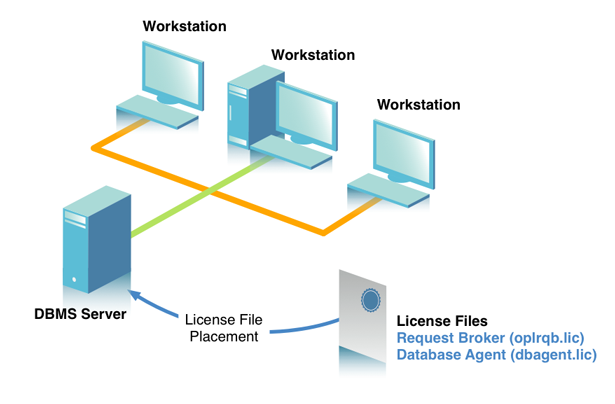
Workstation with Gateway
One or more Workstations contain a client application and our Multi-Tier client driver. The Multi-Tier server components are installed on a gateway server that may or may not contain a database vendor provided client networking middleware, depending on the target DBMS and the capabilities of the our Multi-Tier server components. None of our software is installed on the DBMS server.
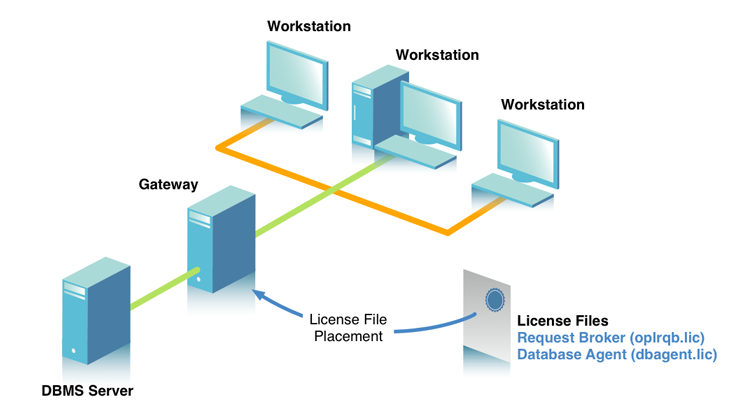
Single Machine Architecture
A single Workstation contains a client application and our Multi-Tier client driver. The Multi-Tier server components and DBMS are also installed this same machine.
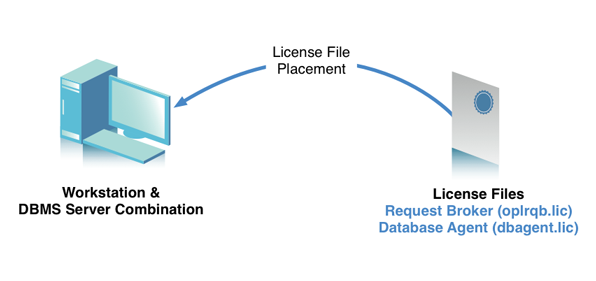
Application Server
Our Application Server license is appropriate for architectures wherein multiple, remote Workstations connect to a centralized server that hosts application server software that manages and serves remote Workstations by returning SQL data from a backend DBMS via our Multi-Tier drivers. The application server software and client portion of the Multi-Tier drivers must reside on the same machine (the application server is basically a client application). The application server may or may not be a dedicated application server (i.e., you may simply have application server software running N instances on a machine). The Multi-Tier server components may reside on any machine on the network that contains the DBMS or DBMS native client, as shown below.
Application Server software is typically deployed on powerful, multi-core server grade machines that host server variants of the host operating systems (e.g., Windows Server, Mac OS X Server, Solaris, HP-UX, Linux Enterprise editions etc.). Thread-safety, parallel execution, load balancing, and other features associated with high volume usage tend to be mission critical are fundamental attributes of Application Server software. Thus, Application Server license model is specific to Application Server Software instances whereby unlimited DBMS sessions are offered per instance, and additional fractional increments charged per additional application server instance.
IMPORTANT: We requires that machines running Server-class operating systems (e.g., Windows Server, Mac OS X Server, Solaris, AIX, HP-UX) be licensed under the Application Server model. This is true even when the machine would otherwise be classed as a Workstation. Dedicated Application Server
Remote Workstations or dumb terminals connect to a dedicated application server that contains a client application and our Multi-Tier client. The Multi-Tier server components reside on a distnct DBMS server.
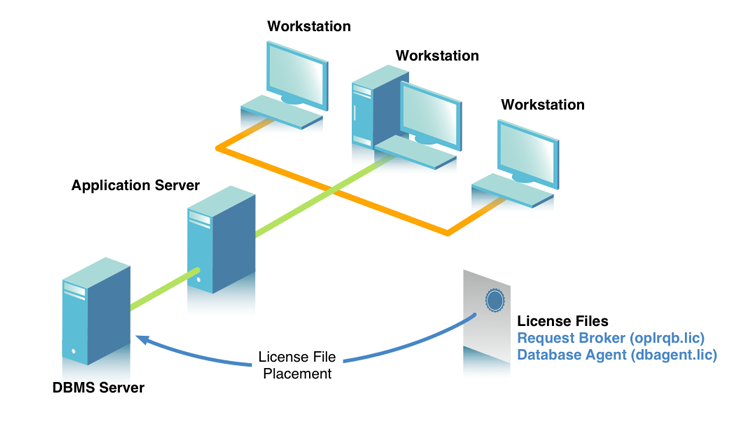
/Intermediate machines may extend the architecture, if the Multi-Tier server components are installed on a gateway machine that may or may not contain a database native client depending on the target DBMS and capabilities of the driver. /
Dedicated Application Server (Variant)
Remote Workstations or dumb terminals connect to a dedicated application server that contains a client application and our Multi-Tier client. The Multi-Tier server components also reside on the application server which may or may not contain a database native client, depending on the target DBMS and the capabilities of the our Multi-Tier server components. None of our software is installed on the DBMS server.
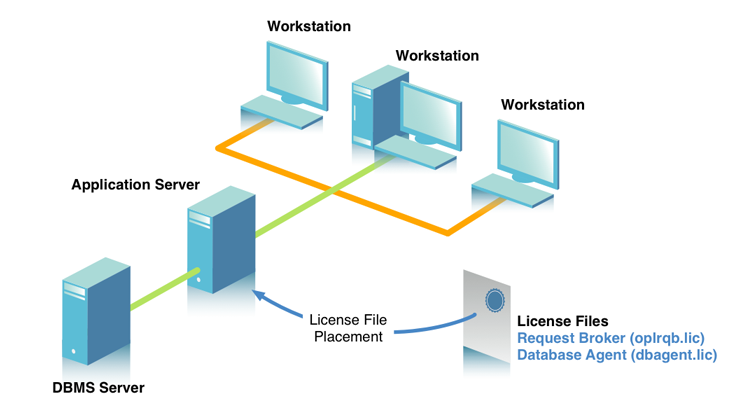
Dual-Purpose Application and DBMS Server
Remote Wlorkstations or dumb terminals connect to a dedicated application server that contains a SQL compliant client application, our Multi-Tier client, our Multi-Tier server components, and the DBMS.
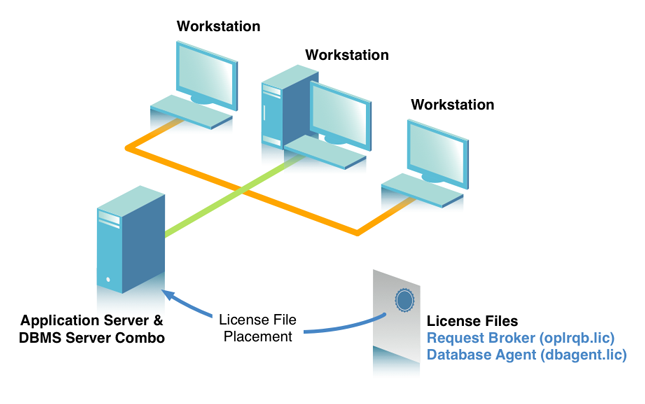
Related